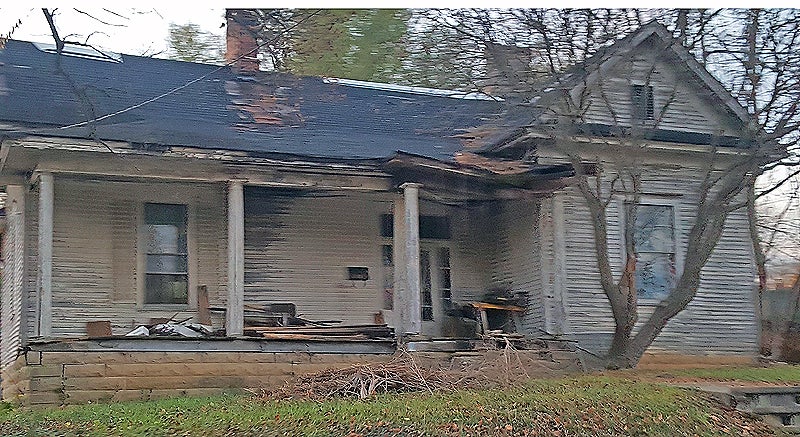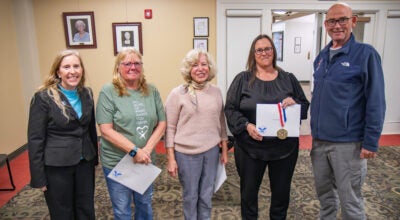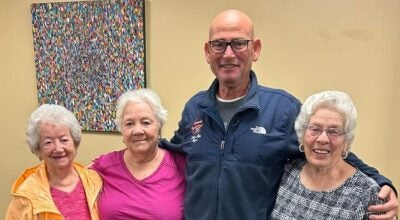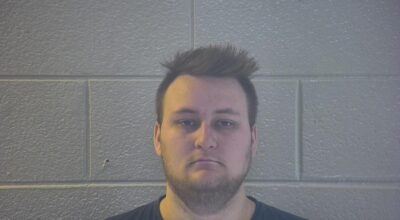Mayor causes mistrial in Stanford property case
Published 6:30 am Thursday, November 17, 2016

- File photo by Abigail Whitehouse Shown here is the property located at 705 Lancaster Avenue, shortly after the grass was cut and other minor areas had been cleared last year.
STANFORD – After Mayor Eddie Carter admitted to speaking to a witness during last week’s jury trial concerning the fair market value of a condemned piece of property, Lincoln Circuit Judge Jeffrey Burdette declared it a mistrial.
A bus waiting to transport the jurors to 705 Lancaster Avenue to view the property in question, owned by Gatewood Cherry, remained empty after allegations that Carter spoke with a witness during the trial were made.
The issue of the dilapidated property was raised nearly two years ago and while Burdette told jurors the court had already determined the City of Stanford could take the property under eminent domain, it was up to them to determine the fair market value that’s owed to the owner as compensation.
On the morning of Nov. 7, jurors were selected before they heard testimony from both the City of Stanford, represented by Christopher Reed, and the property owner, represented by Justin Genco.
Both Reed and Genco called forth one witness, both of which were certified general property appraisers familiar with the area. Testifying as a witness for the City of Stanford, Joseph Ball walked the jury through his appraisal methods, while James Shoemaker was called by Genco to testify to his own, separate appraisal – two values which differed.
Ball deducted $6,500 from his appraisal to cover the cost of demolishing the remaining, dilapidated structure on Lancaster Street, leaving a total value of $8,500.
Shoemaker argued that since Ball had not been inside the home, he failed to include the value of particular parts of the house such as the front wood floors and solid oak joists. He appraised the property at $20,000.
Before taking a recess at about 11:45 a.m., Burdette spent several minutes instructing jurors, attorneys and all people in the courtroom, including Carter, not to speak to anyone about the case and to report any inclination of such behavior.
“If anybody tries to talk to you about the case that would be improper conduct, whether it’s from one side or the other side, whether it’s an official or non-official,” Burdette told the courtroom. “I also admonish all the parties, all the attorneys and the people in the courtroom not to be around this jury, not to talk to this jury, not to influence this jury, not to talk to the bailiff unless you’re asking about an order of the court.”
It wasn’t until both sides had given opening statements, testimony from witnesses were heard and the jury was preparing to board the bus to travel to the property that Burdette called attorneys back into the courtroom alone to answer to allegations of improper conduct.
“The allegation is that between the presentation of the movement’s testimony and when I called my witness, the representative of the city, Eddie Carter, went outside and spoke with my witness concerning the presentation of the Maxwell Street property. That’s where we’re at,” Reed told the judge.
Shoemaker had compared Cherry’s property to a similar, nearby property on Maxwell Street during his testimony.
Reed said he believed the mayor’s action was a harmless error and Ball was called back into the courtroom to speak to the allegation and contents of the conversation.
Ball admitted that Carter came out to speak to him during the trial but that he had only discussed the Maxwell Street property.
“He was speaking on Mr. Shoemaker’s appraisal. Shoemaker said it didn’t have a house… or that it had a shed on it. I knew that it did, from a picture of the house,” Ball said.
Reed argued that the discussion only consisted of information that the witness was already made aware of before the trial.
“You know how much he talks, but all it was was that he said the other appraiser… he didn’t list the house on his appraisal. It did not adjust for the house being on it when it was sold,” Ball testified.
Burdette asked Ball if he remembered the advise that was given to the courtroom before they recessed.
“I do now,” Ball said. “I remember when he came out there, as the mayor, I thought well… maybe. When he comes up and tells me that information that quick, it’s hard to stop him.”
“Do you realize that could be criminal misconduct?” Burdette asked.
“I do now,” Ball said.
Carter was called before the judge to answer to the allegation, which he admitted took place.
“I did talk to Mr. Ball briefly and actually wasn’t thinking it was improper… I maybe didn’t hear in the back when you were talking. It was improper and I apologize,” Carter said.
Carter said all he discussed was that his dad owned the property for many years and that it was a “livable property.”
“So here we are. We are faced with the potential of an influenced witness in this particular case,” Burdette told the attorneys. “…I don’t know, if you believe your case has been compromised, really goes to you, Mr. Genco, if you want to make a motion.”
“Your honor I believe I have a duty to make a motion for a mistrial,” Genco said.
The motion was granted.
During a phone interview this week, Carter said the incident was an honest mistake but he agreed with Burdette’s decision.
“I take full responsibility,” Carter said. “I have a hearing problem but that is absolutely no excuse.”
Carter said he didn’t realize he couldn’t speak to the city’s own witness.
“It was an honest mistake. It wouldn’t have affected the trial in any way,” he said. “I shouldn’t have said anything.”
The trial has been rescheduled for a later date in February, he added.





